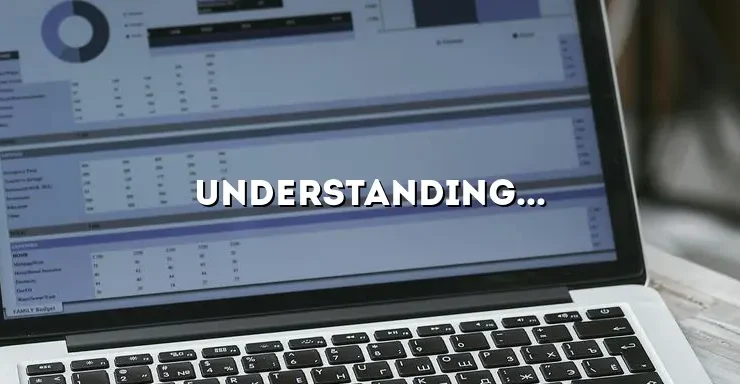
As an apartment owner, it is crucial to understand the importance of insurance coverage to safeguard your investment. Whether you own a single apartment or a complex, unforeseen events can lead to significant financial losses if you are not adequately insured. In this article, we will explore the various types of insurance policies available for apartment owners, the coverage they provide, and why they are essential for securing your property and ensuring peace of mind.
Understanding the Basics of Apartment Insurance
When it comes to apartment insurance, it is vital to have a clear understanding of the basics. There are several types of insurance policies that apartment owners should consider to protect their property and investments. These policies include property insurance, liability coverage, umbrella insurance, business interruption insurance, and tenant insurance.
Property Insurance: Protecting Your Apartment Building
Property insurance is one of the most fundamental types of coverage for apartment owners. It provides protection for the structure of your apartment building, including any attached fixtures, such as plumbing or electrical systems. It also covers damage caused by perils such as fire, theft, vandalism, or natural disasters. Property insurance helps ensure that you can repair or rebuild your apartment building in the event of a covered loss.
Property insurance policies typically come with different coverage options, including actual cash value (ACV) and replacement cost value (RCV). ACV coverage pays for the current value of your property, taking into account depreciation. On the other hand, RCV coverage reimburses you for the cost of replacing or repairing your property without considering depreciation. It is crucial to assess the replacement cost of your apartment building accurately to ensure you have adequate coverage.
Liability Coverage: Protecting Yourself and Your Tenants
Liability coverage is another crucial aspect of apartment insurance. It protects you financially in the event of accidents, injuries, or property damage that occur on your premises. For example, if a tenant or visitor slips and falls in a common area of your apartment building and sues you for medical expenses, liability coverage can help cover those costs. It also covers damages resulting from negligence, such as a fire caused by faulty wiring.
When selecting liability coverage for your apartment, it is essential to consider the amount of coverage you need. The minimum recommended coverage is typically $1 million, but depending on the size and complexity of your apartment building, you may need higher limits. It is also crucial to review the exclusions and limitations of your policy to understand what incidents are covered and any specific conditions that may apply.
Umbrella Insurance: Additional Liability Protection
While liability coverage provides essential protection, it may not be sufficient in some cases. That’s where umbrella insurance comes in. Umbrella insurance provides additional liability coverage beyond the limits of your primary policy. It acts as an extra layer of protection to shield your personal assets in the event of a significant lawsuit resulting from an incident on your property.
Umbrella insurance is particularly valuable for apartment owners, as it can provide coverage for liability claims that exceed the limits of your property insurance policy. For example, if a tenant sustains a severe injury on your property and sues for millions of dollars, umbrella insurance can help cover the excess costs beyond what your primary liability policy covers. It is crucial to review your existing liability coverage and assess the potential risks to determine the appropriate amount of umbrella coverage needed.
Business Interruption Insurance: Safeguarding Your Rental Income
Business interruption insurance is an often-overlooked aspect of apartment insurance. It is designed to protect your rental income and cover additional expenses if your property becomes uninhabitable due to a covered event, such as a fire or natural disaster. With business interruption insurance, you can receive compensation for lost rental income during the time it takes to repair or rebuild your apartment building.
This type of coverage is particularly valuable for apartment owners who rely on rental income to cover mortgage payments, property taxes, and other expenses. Business interruption insurance can help bridge the financial gap during the period of restoration, preventing you from incurring significant financial losses. It is essential to review the coverage limits and waiting periods associated with this type of insurance to ensure you have adequate protection.
Tenant Insurance: Encouraging Your Tenants to Protect Themselves
While apartment insurance primarily focuses on protecting the property owner, it is essential to encourage your tenants to obtain their own insurance coverage. Tenant insurance, also known as renter’s insurance, provides protection for your tenants’ personal belongings and liability. Encouraging tenants to obtain their own insurance can help reduce the likelihood of claims against your policy and potential increases in premiums.
Tenant insurance typically covers a range of perils, including theft, fire, water damage, and liability for accidents or injuries that occur within the tenant’s unit. By having their own coverage, tenants can ensure that their personal belongings, such as furniture, electronics, and clothing, are protected in the event of a covered loss. It also provides liability protection for the tenant, which can be crucial if they cause damage to the apartment or accidentally injure someone.
Navigating the Claims Process: Tips for a Smooth Experience
In the unfortunate event of a covered loss, navigating the claims process can be daunting. However, understanding the steps involved and being prepared can help ensure a smooth experience. Here are some essential tips to consider:
Documenting Damages
When filing an insurance claim, it is crucial to document all damages thoroughly. Take photographs or videos of the affected areas, including any damaged property or belongings. This evidence will support your claim and help ensure a fair assessment of the damages.
Reporting the Incident Promptly
Notify your insurance company as soon as possible after the incident occurs. Prompt reporting is essential to initiate the claims process promptly. Be prepared to provide details of the incident, including the date, time, and a description of what happened.
Working with Insurance Adjusters
Insurance adjusters play a vital role in assessing the damages and determining the claim’s validity. Cooperate fully with the adjuster assigned to your claim, providing any requested documentation or information promptly. Be prepared to answer questions and provide additional evidence if necessary.
Reviewing the Settlement Offer
Once the insurance company has assessed the damages, they will provide a settlement offer. Review the offer carefully, ensuring it adequately covers the damages and losses you have incurred. If you have any concerns or believe the offer is insufficient, discuss it with your insurance adjuster or consider seeking professional advice.
Appealing a Denied Claim
In some cases, an insurance company may deny a claim. If you believe your claim has been wrongfully denied, you have the right to appeal the decision. Consult your insurance policy and review the denial letter for specific instructions on how to proceed with an appeal. Consider seeking legal advice to understand your rights and options.
Reviewing and Updating Coverage Regularly
Insurance needs can change over time, so it is essential to review your coverage regularly. Major life events, such as renovations, upgrades, or changes in occupancy, may require adjustments to your insurance policies. Regularly reviewing and updating your coverage ensures that you have adequate protection for your investment.
In conclusion, as an apartment owner, investing in comprehensive insurance coverage is vital to protect your property, finances, and reputation. By understanding the various types of insurance policies available and their benefits, you can make informed decisions to secure your investment and provide a safe environment for your tenants. Remember, choosing the right insurance coverage tailored to your specific needs is the key to peace of mind in the face of unforeseen events.






